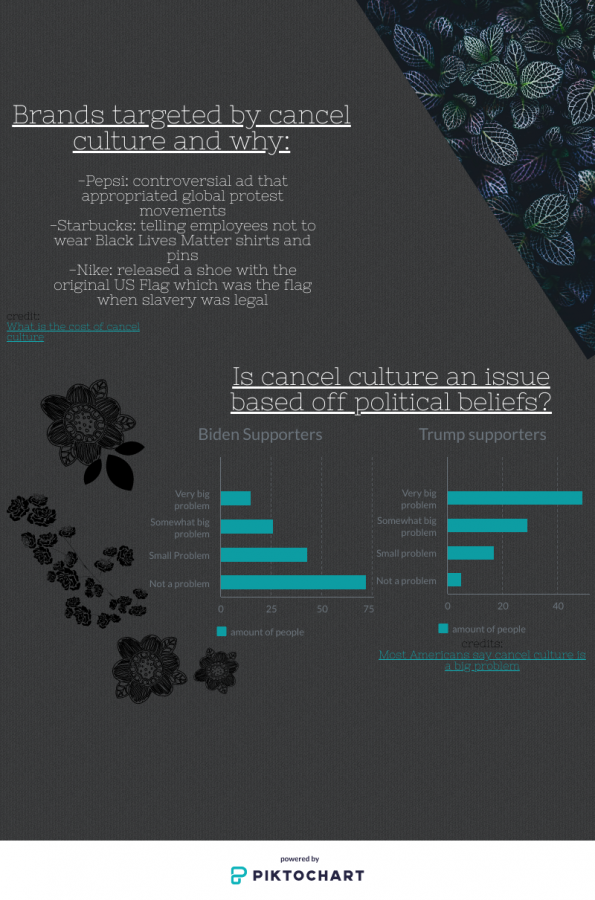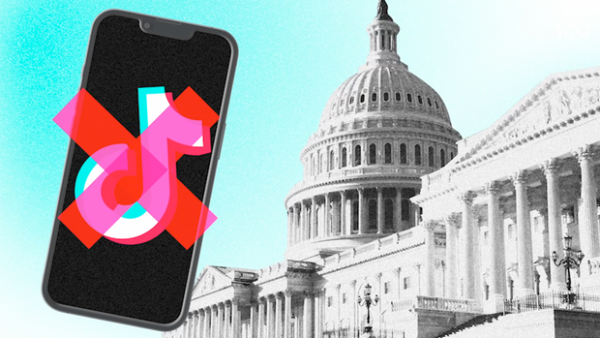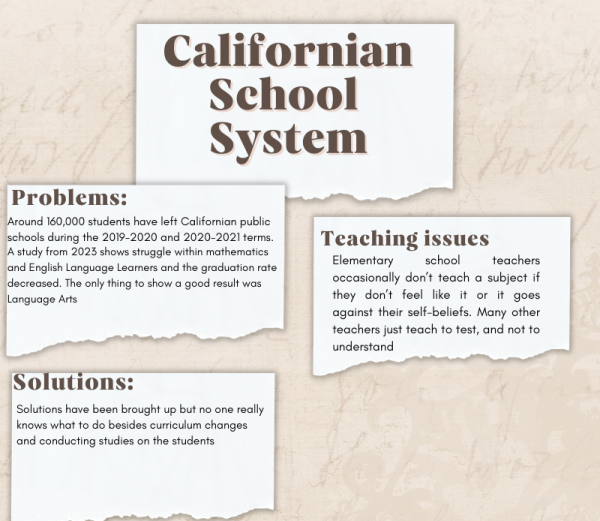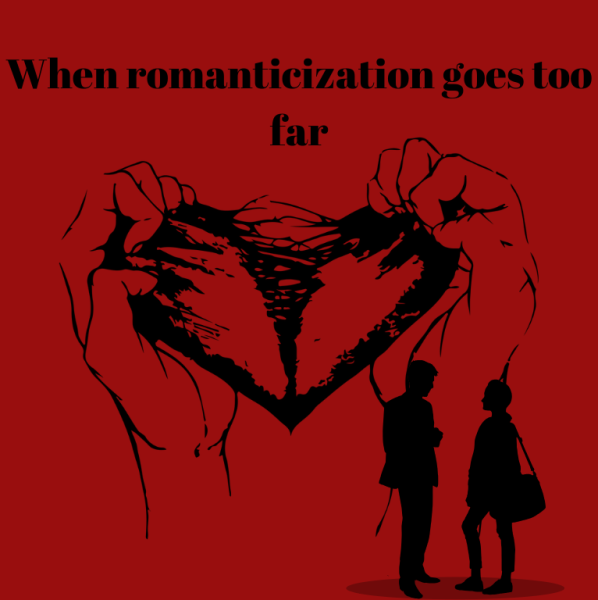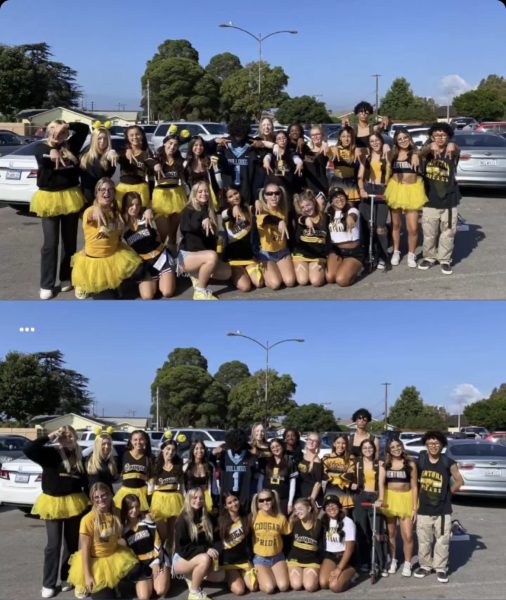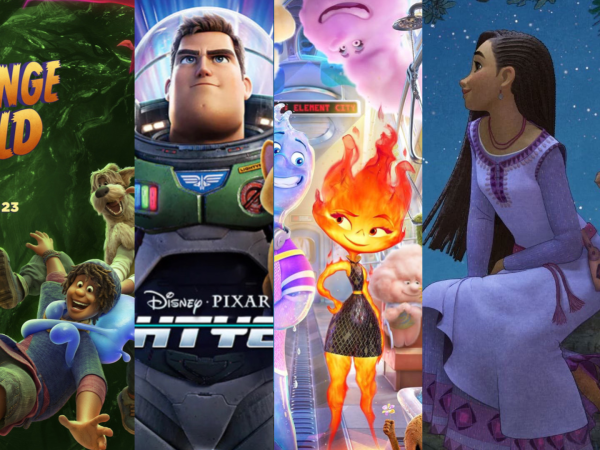Should cancel culture be cancelled?
Not only are people targeted by cancel culture, but so are brands.
March 26, 2021
Imagine a world where your opinions completely dictated your popularity in society and with the people around you. A place where your whole career could be destroyed over a mere disagreement. Believe it or not, this may be a strange new reality.
During the original COVID-19 lockdown which started in March 2020 in Ventura County, many saw the rise in the concept of “cancel culture” on social media platforms of all kinds. Many well known, and relatively respected artists and content creators like Shane Dawson, JK Rowling, Jeffery Star, and many more faced a lot of backlash or almost lost their career based on something they did or said. This has brought a question to the surface which many people can’t answer: should cancel culture be cancelled?
This question has been widely debated on how society should respond to people who have views that some find offensive. Some say people who do some questionable things deserve to be cancelled while others think everyone makes mistakes and they should be forgiven. Despite this, we continue to see not only more people, but brands also getting “cancelled”. To fully understand this dilemma which Generation X has brought onto itself, you have to understand exactly what it is, and what the process looks like.
In the past videos or pictures have surfaced of influencers or politicians saying racially derogatory terms or participating in racist cosplay. Somehow these videos manage to resurface after years and years, sometimes even decades, after being created. All it takes is one post or one share and millions of people on the internet have access to the content. In an instance, someone’s career which they spent a lifetime building can be completely destroyed by a mistake made when they were just a teenager, still learning right from wrong.
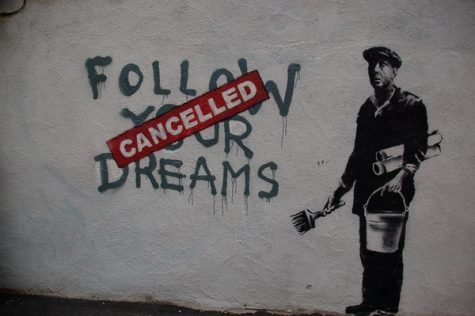
The author of all the Harry Potter novels, JK Rowling was in the spotlight of cancel culture after tweeting support for a transphobic researcher. Many, if not most people have heard of her name as she has created some of the most iconic novels of this generation. Rowling was recently “cancelled” after she showed support for a researcher who is viewed by many as being transphobic for tweeting some content that came off as anti-transgender.
As a result, Rowling then received hate from a majority of her fans who believed Rowling was saying that transgender people ‘aren’t real’. This is far from the first time Rowling has been accused of transphobia after promoting things that may not directly state their opposition to the transgender community but vaguely said things that could be interpreted that way.
Of course, the public was still quick to react, completely disregarding Rowling’s previous actions to help defend the LGTBQ+ community. This went on to a point where her whole career was almost destroyed, and to this day she is still facing backlash.
The same sort of thing happened with the YouTuber Shane Dawson, who built his career for about twenty years. Over these years he managed to gain a large following on the YouTube platform and became one of the most popular Youtubers at the time. However, he began making controversial comments about the YouTube beauty community which made a lot of people angry. In return, these people dug up old videos from his past which were disturbing and offensive enough to bring his whole entire career to a halt.
Even after Dawson created a lengthy apology video, his audience still didn’t forgive him and his popularity has decreased to a point of no return.
These are just two of the many cancellations that have taken place in the span of about a year. Are these really necessary and do they actually benefit our society in any shape or form?
Well, it is no lie that well known people make mistakes on social media everyday, and the answer to this may be because they are simply growing up and making mistakes too, just in front of the whole world. Yet, if they make mistakes just like us should we be getting cancelled too?
There are smaller scale cancellations which do not always occur online. Maybe someone at school said something mean about another student and now a large group of students no longer want to talk to them, and begin to talk about them to the rest of the school. The difference between this smaller scale situation and a mass scale cancellation is how it affects you in years to come.
The internet should consider the person as a whole before they make any big moves.
Once these renowned celebrities get called out, sometimes their career is completely shut down and over for good. There are many cases where the celebrity in question will make an apology video in attempt to beg for the public’s forgiveness, but sometimes their efforts fall through and they are stuck shriveling out of the public eye for a few years, or sometimes the rest of their lives.
A debate started online about one’s actions is okay, as you are bringing to light a mistake someone made which they should fix or realize wrong. However, ruining the rest of their life because of it seems like an overreaction.
This idea seems so hypocritical to what society teaches us about second chances and trying again. Why should a person be bashed for their actions they committed years and years ago, or about something which wasn’t directly stated? Perhaps cancel culture should be cancelled.
The internet should consider the person as a whole before they make any big moves. This includes considering their most recent actions, their personality, their generosity, and the time the action in question was created or said, as people often say things they regret, and try to better themselves in the future. After all, even celebrities and people of high prominence are human. Sometimes society likes to leave that part out when it is convenient.

